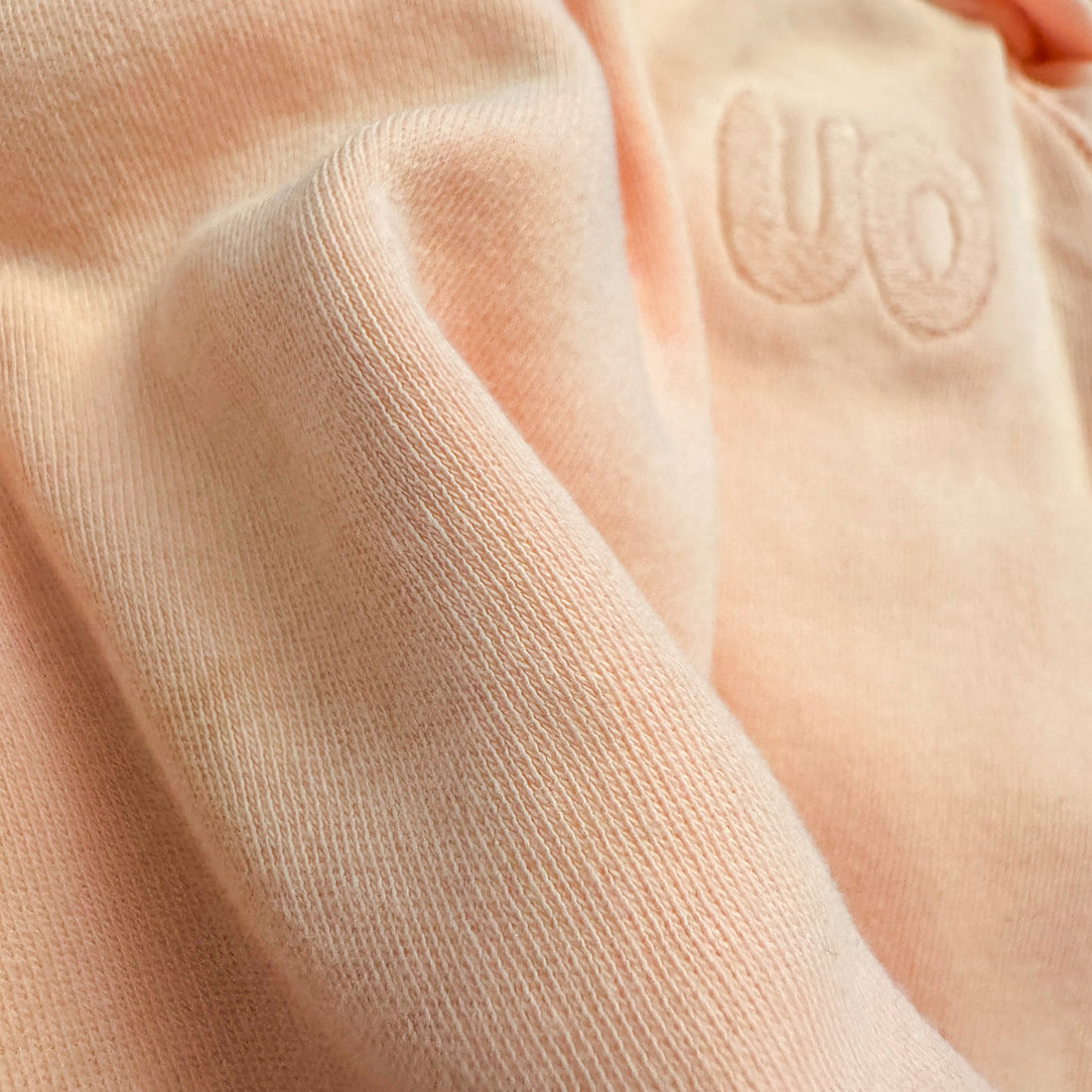
Natural vs. Synthetic Baby Clothing: What’s the Difference?
Share
Breaking Down Polyester, Rayon, Cotton, Bamboo & More
Choosing clothes for your baby goes beyond style and size—the type of fabric matters more than you might think. With baby skin being so delicate and sensitive, understanding the difference between natural and synthetic fibers can help you make safer, more informed choices.
In this post, we’ll break down the most common baby clothing fabrics—like polyester, rayon, cotton, and bamboo—and help you understand how they compare when it comes to comfort, safety, breathability, and sustainability.
👶 Why Fabric Choice Matters for Babies
A baby’s skin is:
- Thinner and more permeable than adult skin
- Prone to rashes, irritation, and allergies
- In close contact with clothing 24/7
That’s why it’s crucial to choose fabrics that are gentle, breathable, and free from harmful chemicals. Let’s take a closer look at what that means.
🧵 Natural Fibers
Natural fibers come from plants or animals, and they tend to be more breathable, biodegradable, and skin-friendly.
🌿 Cotton
- Source: Cotton plant
- Pros: Soft, breathable, durable, widely available
- Cons: Conventional cotton can use pesticides and chemicals unless certified organic
- Best for: Everyday wear, swaddles, onesies
- Tip: Look for organic cotton certified by OEKO-TEX® or GOTS for the cleanest option
🎋 Bamboo (Viscose from Bamboo)
- Source: Bamboo plant (processed into rayon)
- Pros: Very soft, moisture-wicking, antibacterial properties
- Cons: Most bamboo fabric is rayon, requiring chemical processing to turn it into fabric
- Best for: Pajamas, blankets
- Tip: If you choose bamboo, look for closed-loop processes (like Lyocell) and transparency from the brand
🐑 Wool
- Source: Sheep
- Pros: Naturally insulating, moisture-wicking, biodegradable
- Cons: Can be itchy for sensitive skin, may require special washing
- Best for: Cold-weather layers
- Tip: Choose merino wool for softness; always check that it’s non-mulesed and ethically sourced
🧪 Synthetic & Semi-Synthetic Fibers
These fibers are made from chemical processes, often using petroleum-based raw materials.
🧷 Polyester
- Source: Petroleum-based synthetic
- Pros: Cheap, durable, wrinkle-resistant
- Cons: Not breathable, can trap heat and moisture, microplastic shedding, not biodegradable
- Best for: Outerwear, but not recommended for direct skin contact
- Concern: Can cause overheating and irritation on baby’s skin
🌫 Rayon / Viscose
- Source: Cellulose from wood pulp (like bamboo or trees)
- Pros: Soft, drapes well, feels silky
- Cons: Requires intensive chemical processing that can be harmful if not done responsibly
- Best for: Occasional pieces, but not as eco-friendly as it sounds
- Tip: Look for rayon processed in a closed-loop system (like TENCEL™ Lyocell)
🧵 Nylon / Acrylic
- Source: Petrochemical-based synthetics
- Pros: Stretchy, strong
- Cons: Can be irritating, traps heat, not eco-friendly
- Best for: Avoid for babies unless used in very small amounts (e.g., sock cuffs or elastics)
Natural vs. Synthetic: Side-by-Side
|
Feature |
Natural Fibers |
Synthetic Fibers |
|
Breathability |
High |
Low |
|
Skin-friendliness |
Gentle |
Can cause irritation |
|
Chemical Use |
Minimal in organic fabrics |
High during production |
|
Sustainability |
Biodegradable, renewable |
Petroleum-based, non-biodegradable |
|
Moisture management |
Absorbs and releases moisture |
Traps heat and sweat |
|
Cost |
Often higher |
Usually, lower |
💚 What’s Best for Baby?
For most baby clothing—especially items worn directly on the skin like onesies, pajamas, and bibs—natural, breathable, and chemical-free fabrics are the safest choice.
✔ Choose:
- Certified organic cotton
- Responsibly processed bamboo or lyocell
- Merino wool for cold weather
✖ Avoid (when possible):
- Polyester blends
- Acrylic and nylon in sleepwear
- Rayon without transparency
🌱 At URTHLY ON, We Keep It Simple and Safe
At URTHLY ON, all of our baby essentials are made from 100% certified organic cotton that’s soft, breathable, and completely free from harmful chemicals. We never use synthetic blends or hidden plastics, because your baby’s skin deserves the purest start.
Final Thoughts
Fabric isn’t just a detail—it’s the foundation of your baby’s comfort and safety. Choosing natural, certified materials means fewer chemicals, better breathability, and a more sustainable future for all.
Want to feel the difference?
Shop our collection and wrap your little one in softness and peace of mind.